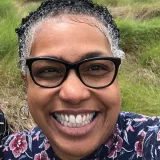Voyager Sopris Learning EDVIEW360 Podcast Series
The Science of Reading: A Defining Movement
Released: Wednesday, September 08, 2021
The future depends on our children and one way to fully empower them is to recognize that literacy is a fundamental right in society. Join Dr. Maria Murray—founder and president and CEO of The Reading League—for an innovative podcast episode as she explains why the science of reading is now regarded as a defining movement and addresses the need to protect the integrity of its findings so that the promise of successful reading outcomes for our students can be realized.
In this podcast, Dr. Murray will discuss:
- Defining the Science of Reading
- Recognizing literacy as a human right
- What the Science of Reading is NOT
- ‘Science’ separates what the Science of Reading is
- What we have learned; What we still have to learn
- How to be good citizens for the Science of Reading
- Creating equity and much more!
You don’t want to miss this engaging conversation!
The Importance of Explicit Reading Instruction
Released: Wednesday, February 10, 2021
Explicit reading instruction is an approach to teaching reading that is based on research about the brain and how we learn, combined with structured and sequenced literacy instruction. Join explicit instruction expert Dr. Anita Archer for this informative podcast as she discusses the importance of explicit instruction and how it promotes achievement for students of all reading levels.
During this podcast, we will discuss:
- What explicit instruction is and how it works hand in hand with systematic reading instruction
- How explicit instruction benefits students with reading challenges
- How to use explicit reading instruction to deliver more effective lessons
Add your email here to sign up for EDVIEW360 blogs, webinars, and podcasts. We'll send you an email when new posts and episodes are published.

Pam Austin has over 36 years of experience as an educator. Her current role as a Professional Learning Facilitator Manager and previous positions as the Director of Instructional Technology, and Professional Learning Facilitator includes over 17 years of experience in training and supporting districts in various literacy and numeracy interventions for Voyager Sopris Learning in addition to delivering LETRS professional development sessions.
She has also shared her love of proven VSL solutions as a product marketing manager when she began her role as a EDVIEW360 podcast host in 2019 and continues to this day. Her goal is to aid teachers in changing the lives of students so that they not only become proficient and successful learners, but also, individuals confident in pursuing personal and professional life goals. She previously held the role of literacy specialist at the Center for Development and Learning (CDL) now the Center for Literacy and Learning.
As an educator, in the New Orleans Public Schools for 14 years, she served as an elementary teacher, a reading interventionist, a school-based reading coach, and a Central Office Field Literacy Facilitator. These varying roles allowed her to gain a myriad of experiences that has enhanced her ability to work in collaboration with other educators, schools, and districts for impactful professional learning. Pam’s first steps into a life-long career as an educator began as a fourth-grade teacher, in small school, in the Archdiocese of New Orleans. And the journey continues…

Cassondra Mantovani brings more than 25 years of leadership experience at the intersection of education, leadership, and technology–leading teams that directly support teachers and students in classrooms every day across K–12 and higher education. She currently serves as Vice President of Revenue & Operations for Voyager Sopris Learning® & Kurzweil Education, where she has spent more than a decade partnering closely with educators and school leaders to improve outcomes for students.
As host of EDVIEW360, she is passionate about making complex, often challenging education topics accessible and actionable—turning big ideas into meaningful takeaways, insights that inspire broader audiences, and taking a student-centered approach to the advancement of education. On EDVIEW360, she loves sitting down with some of the smartest and most passionate minds in education to explore not only what they do, but why they do it—uncovering the aha moments, lessons learned, and perspectives that move the field forward.
Born and raised in Los Angeles, she has called Dallas home for the past decade. She is deeply driven by the belief that learning to read, empowering students to graduate, and valuing education can fundamentally change the trajectory of a person’s life—opening doors to enhanced life opportunities and lasting family legacy.
Above all, she is a proud boy mom, a lifelong learner, and a steadfast advocate for better serving students—today and for generations to come.


